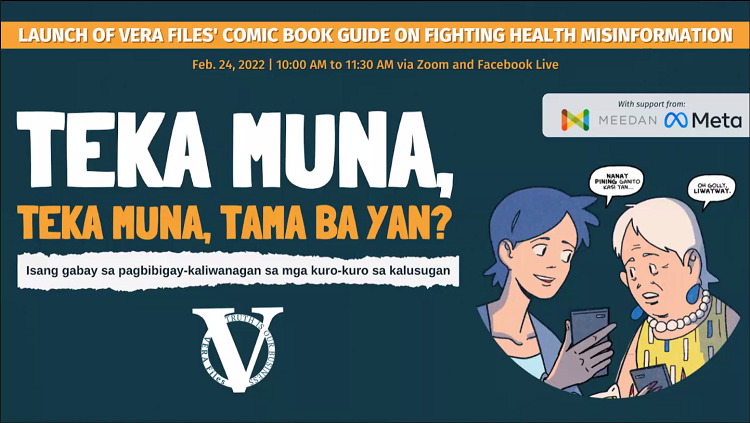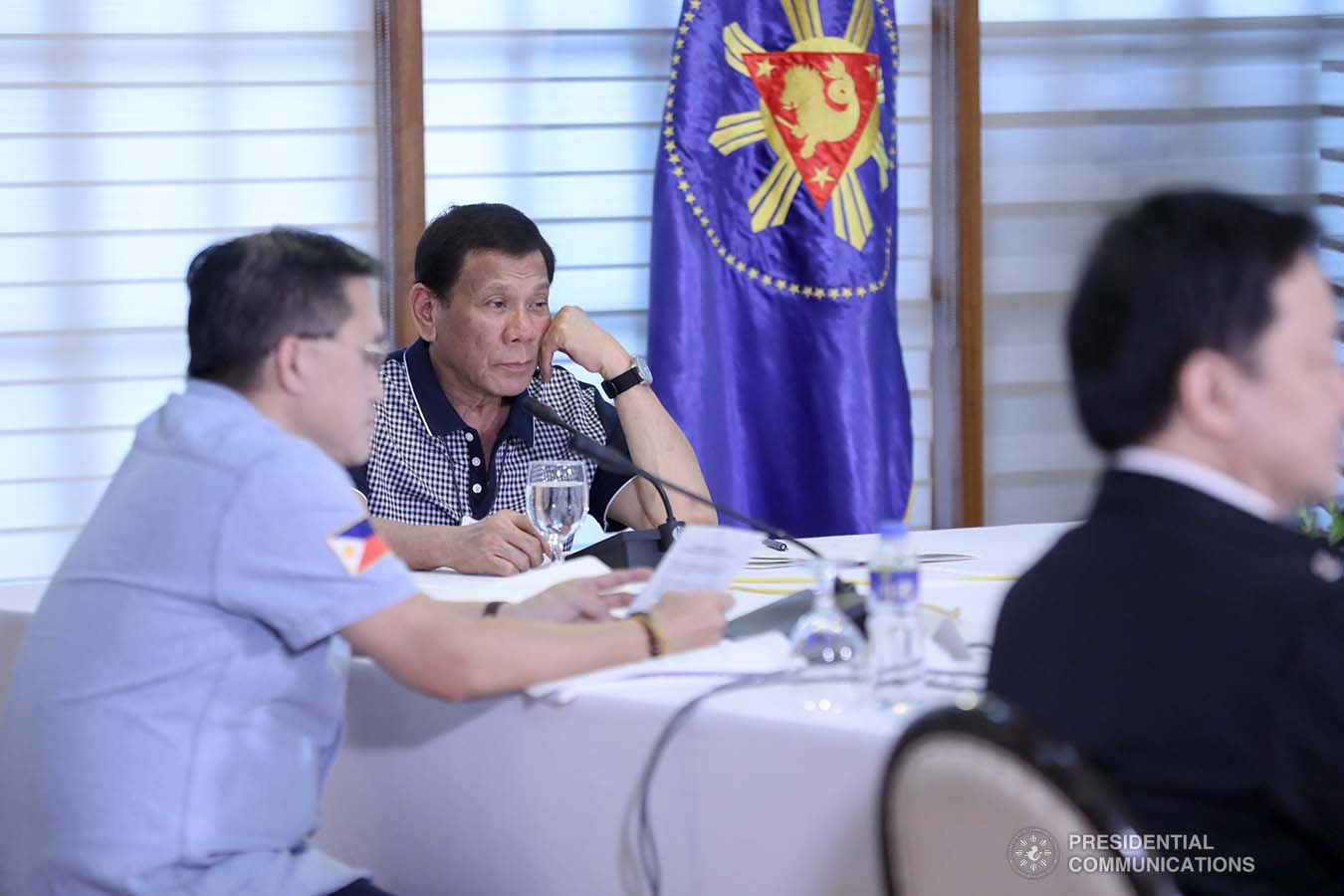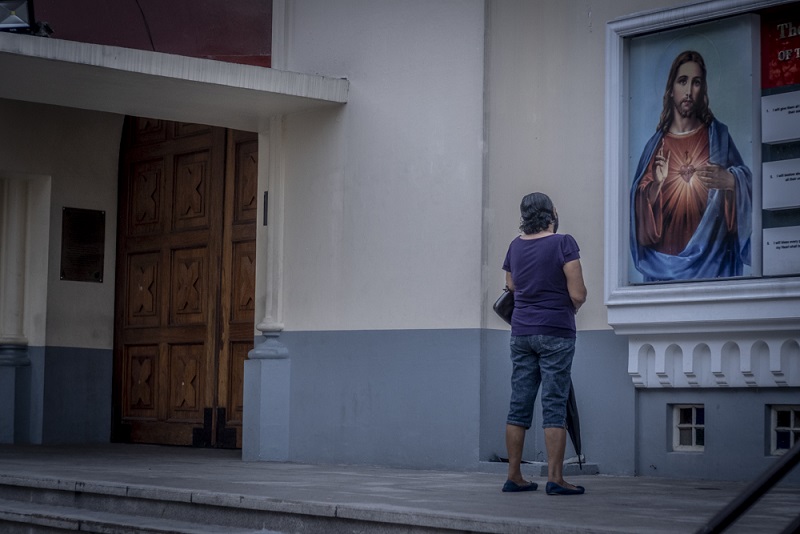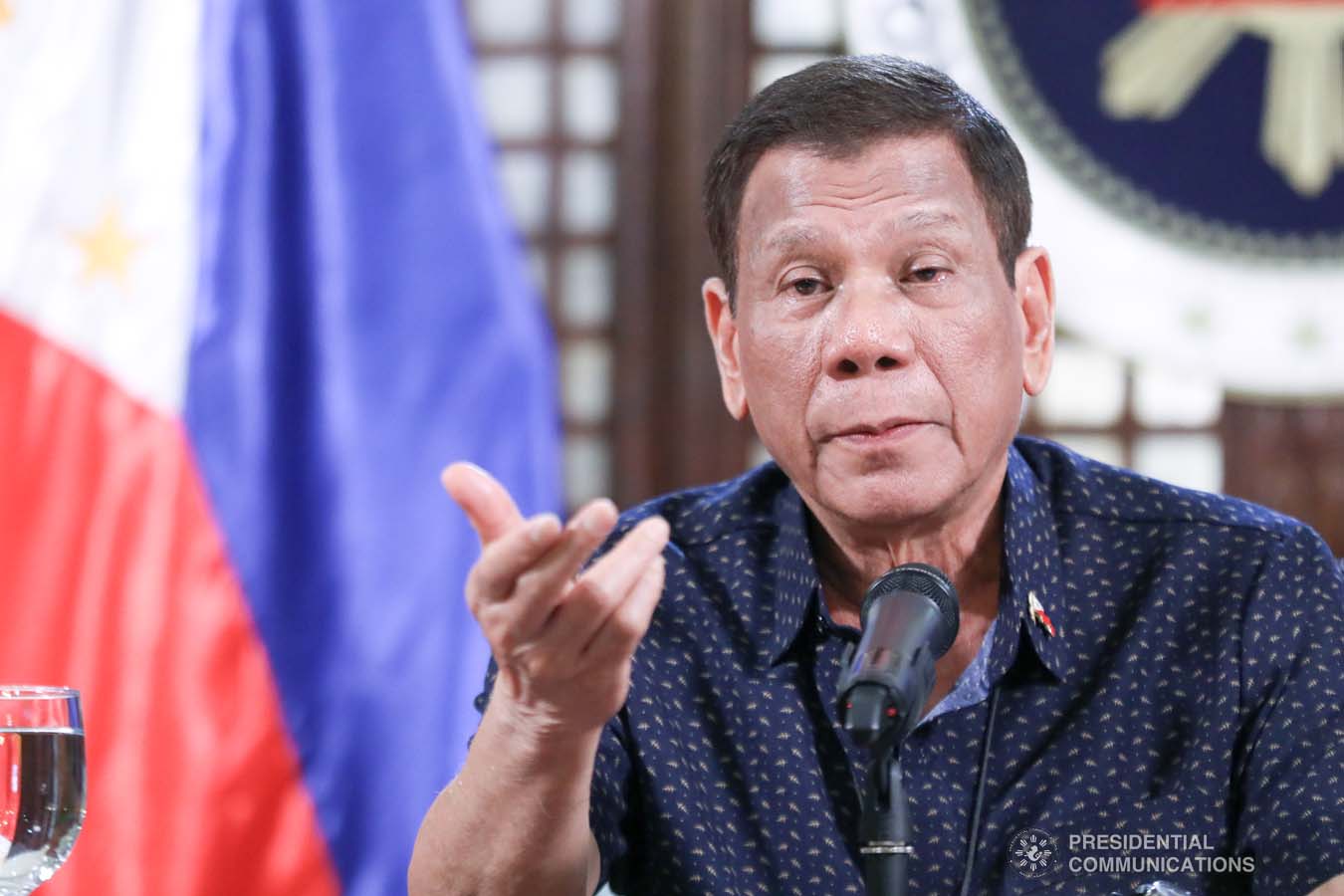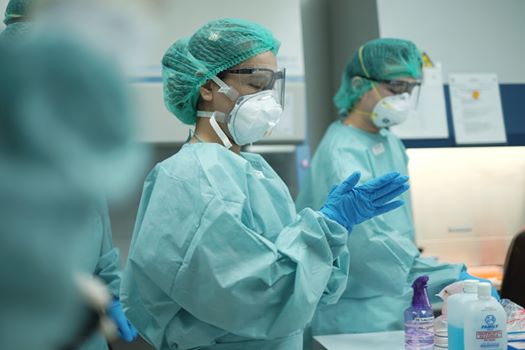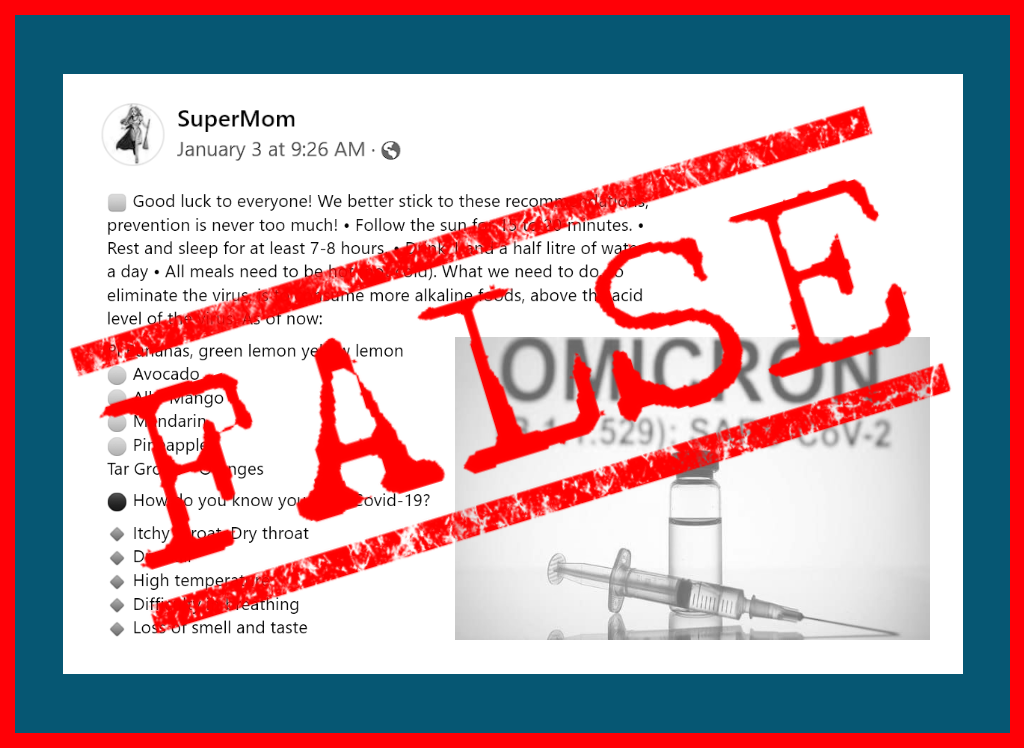Medical experts on Thursday said the Philippines has grown into a prime hub for health mis- and disinformation amid the COVID-19 pandemic.
“The Philippines has the highest rate of misinformation and the highest rate of beliefs in conspiracy theories,” medical anthropologist Dr. Michael Tan said in his opening message during the Feb. 24 virtual launch of VERA Files Komiks handbook to counter health-related mis and disinformation.
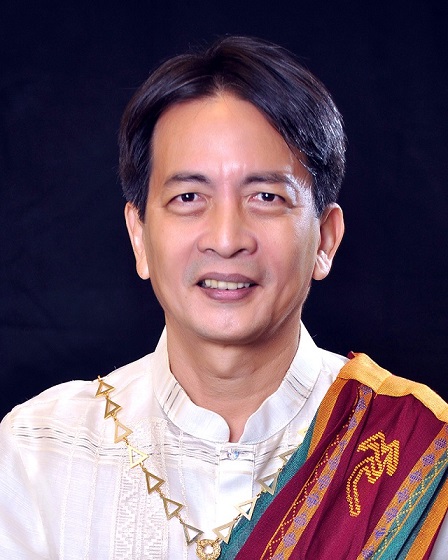
Dr. Michael Tan
Citing a 2021 Frontiers in Psychology study involving eight different countries, Tan noted “that educational attainment has no role” in the spread of health mis- and disinformation. He expressed his frustration, a sentiment shared by colleagues present at the launch when fellow physicians themselves spread false or unproven information to the public.
Younger people, and those most exposed to social media, were more likely to spread health-related misinformation, the study also showed. At the same time, due to the highly polarized political climate in the country, politicians were also often sources of false information, Tan said.
The study also showed that people who trust medical professionals and rely on traditional media are less likely to be vulnerable to health disinformation.
Strong influencers
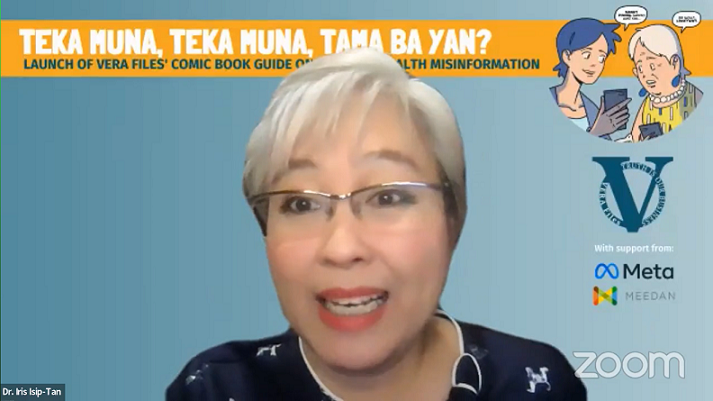
Echoing the same observation, Dr. Iris Isip-Tan, an endocrinologist and University of the Philippines College of Medicine professor, remarked that health-related information usually becomes misinformation through misunderstanding, selective reporting, or excessive influence of political and commercial interests.
She pointed out that politicians were among the strong influencers of health communication during the pandemic. Unfortunately, “politicians are motivated by myopic goals and may prioritize short-term successes compared with building trust for the next health crisis,” Dr. Isip-Tan said, quoting a 2021 United States National Academy of Sciences study.
Isip-Tan added that “information voids” are created when the scientific community fails to keep up with the surge of health-related information, thus allowing health misinformation to fill in the gaps.
In an analysis that looked into more than 12,000 tweets in the National Capital Region, Isip-Tan said they found that the most common way health misinformation spreads is through humor or satire, which people may find true.
Something must be done
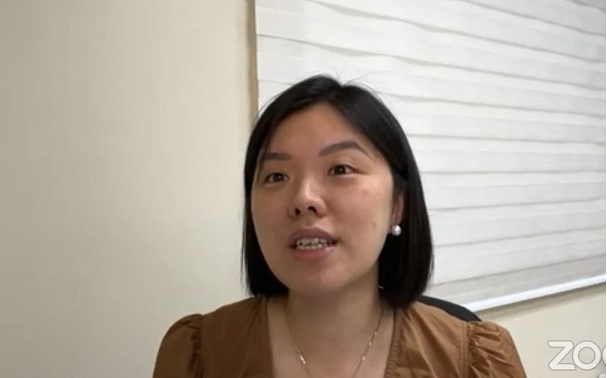
Dr. Beverly Ho
Meanwhile, Dr. Beverly Ho, director of the Department of Health’s Health Promotion Bureau, admitted government efforts were limited to stop the overwhelming production of misinformation.
The health official underlined how crucial it is to hold social media platforms accountable and demand they take action, even as she stressed the importance of partnering with organizations to address the growing problem.
“This is also the time to ask the [social media] platform owners… What is the big shift that needs to happen? Because otherwise, the platforms are really a breeding ground for misinformation and something needs to be done about it,” Ho said.
She compared the “enabling environment” of digital media to repeatedly putting out the fire while doing nothing to stop its source.
Easy-to-read format
The VERA Files handbook in komiks format aims to counter health mis- and disinformation that can easily be digested by readers of all ages. The manual is the culmination of the organization’s four-year experience in working on online health disinformation.
The komiks book, with a Filipino and English version, is initially accessible online. A print version will also be available soon.
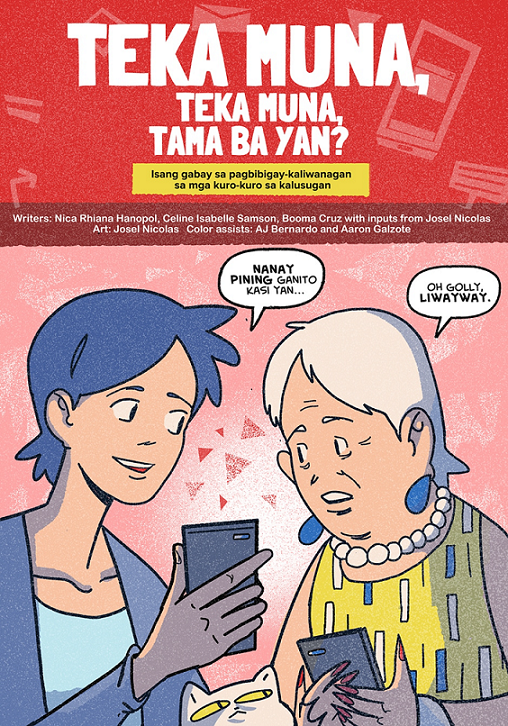
It tells the story of Liwayway, a 20-year-old woman, and her grandmother (Lola) Pining as they wade through COVID-19 disinformation and other old health myths handed down through generations. DZRH talents dramatized a portion of the komiks handbook about the misinformation that tuob (steaming) cures Covid-19 during the launch.
VERA Files President Ellen Tordesillas said the organization, a signatory of the International Fact Checking Network and is third-party fact checker for Meta, formerly Facebook, uses various media formats to make the serious task of debunking falsehoods interesting.
They thought of using the Komiks format because of the medium’s appeal across generations.
Celine Samson, VERA Files’ online verification head, “The comic book we are launching today, titled ‘Teka Muna, Teka Muna! Tama Ba ‘Yan? (Wait a second! Did you get that right?)’ is a result of the observation that health misinformation is incredibly popular in the Philippines, even before the COVID-19 pandemic,” Samson said.
However, she clarified that the spread of the disinformation is not always “nefarious” in nature. “Sometimes, people simply are just in search of hope and they are willing to try everything, to cure them of whatever ailment they are experiencing,” Samson added.
In correcting disinformation, VERA Files does this “not to shame, but to educate” netizens, and more importantly, friends and families. “After all, fact-checking is a practice that should start at home,” she said.
Among the guests at the launch is Meedan’s Asia-Pacific program director Shalini Joshi, who lauded the production of a health comic book guide, produced in partnership with their organization.
“We’re very proud of this partnership with VERA Files. Very, very supportive of all the excellence that they’re doing around media literacy, fact-checking… and also using creative formats like the comic book,” she said.
Meedan, in its efforts to counter health disinformation, has formed the Health Desk which provides health-related information to fact-checkers and netizens alike. VERA File is a partner in it’s Global Check program.
